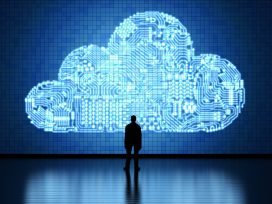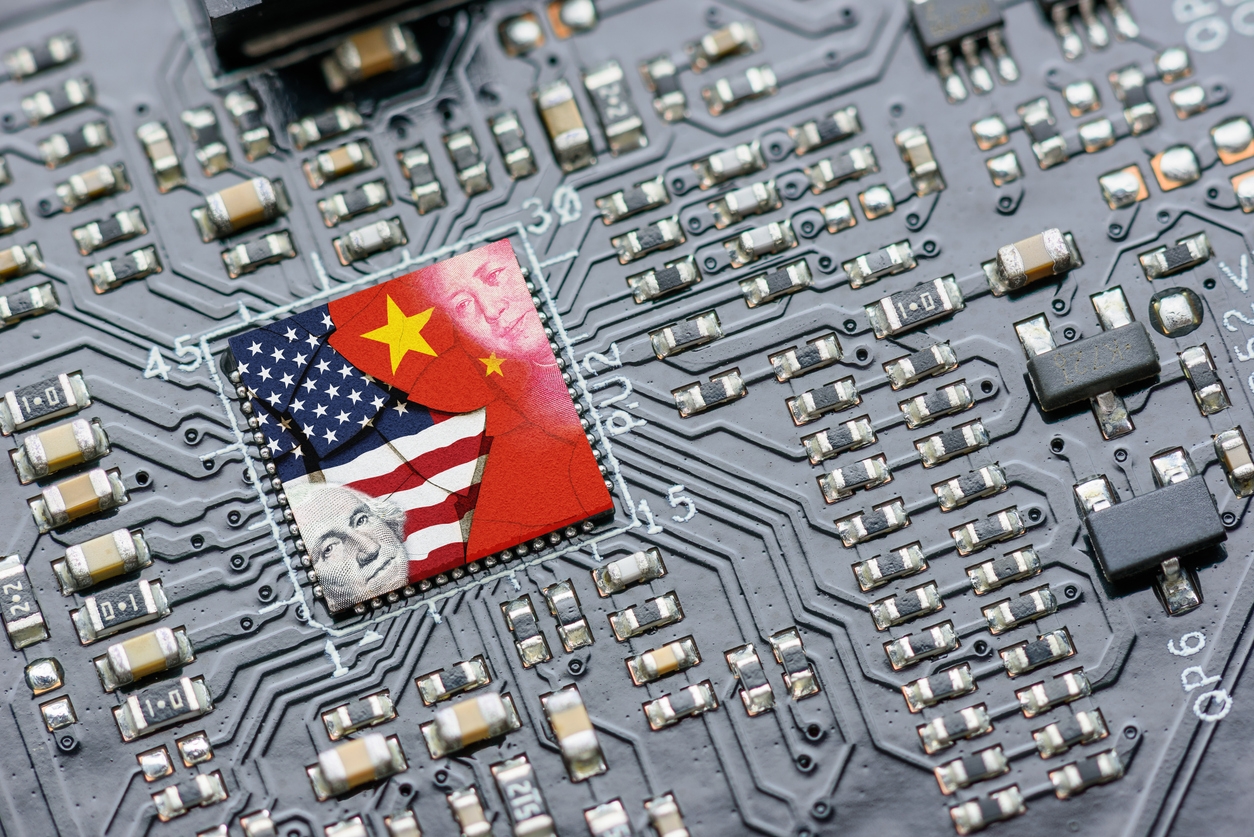COVID-19 Crisis: Which Tech Firms Are Helping?

[Editor's note: We are updating this article as more information comes in. Most recent update: April 14, 11 AM ET]
It’s a business-school adage that crises create opportunities, and the COVID-19 pandemic has tech marketers working overtime to generate loyalty and goodwill among customers and prospective buyers.
These companies realize there’s advantage in being perceived as charitable and caring. Ethical business leadership builds stronger teams, advances productivity, and affects public perception. Being helpful is also good business. By reaching out now to help enterprises cope with security, remote access, virtual networking, and other business continuity issues, vendors across the spectrum of digital transformation are building their brands. And they’re getting a foothold in new environments, which could prove to be a strategic advantage once the crisis passes.
Charitable Outreach
A number of big technology players have established funds or donated credit or cash to help ameliorate some of the current difficulties.
Here’s a sampling:
Alibaba (NYSE: BABA) has not directly contributed to relief efforts, but Alibaba co-founder Jack Ma has made headlines worldwide by donating 500,000 coronavirus test kits and 1 million protective face masks to the U.S., along with similar shipments to countries in Europe, Asia, the Middle East, and Africa. Working through the Alibaba Foundation and the Jack Ma Foundation, he also has pledged sizeable donations toward vaccine research. Ma withdrew from corporate life last year but continues to work as a philanthropist.
Apple (Nasdaq: AAPL) donated $15 million to a generalized COVID-19 relief effort, and the vendor will match employee charitable donations two-to-one. The company also has donated 20 million protective masks worldwide and is at work making and delivering a newly designed face shield for medical personnel.
Alphabet (Nasdaq: GOOGL) has committed $50 million toward a mix of COVID-19 relief, education, and research efforts.
Update: In a joint announcement on Friday, April 10, Apple and Google said they are collaborating on a project that will allow people with COVID-19 to be tracked and those they've come in contact with alerted to potential exposure. The project, dubbed a "contact tracing technology," will include a set of APIs from both companies that enable iOS and Android devices to communicate with public health applications. The firms say privacy will be respected and all input collected only with consent of the users. Initial release is set for May.
Amazon (Nasdaq: AMZN) has, along with a range of other measures to help employees and customers, pledged $20 million in "AWS in-kind credits and technical support" toward the AWS Diagnostic Development Initiative. The funds will go to research institutions and other entities that use AWS cloud services for purposes related to COVID-19 research. AWS parent Amazon also has donated €21 million to European virus relief, and Amazon CEO Jeff Bezos has donated $100 million to the COVID-19 relief efforts of the Feeding America organization.
CenturyLink (NYSE: CTL) is donating free high-speed Internet connections to field hospitals that have sprung up to cope with COVID-19. The provider of SD-WAN managed services is working to bring Ethernet connectivity at rates from 200 Mbit/s to 1 Gbit/s to field hospitals in the Seattle area and beyond. It also connected the U.S. Naval Ship Mercy when it arrived in the Port of Los Angeles.
Cisco (Nasdaq: CSCO) pledged $225 million in cash and products to several organizations that support the World Health Organization’s COVID-19 response.
Update: On April 14, Cisco launched a $2.5 billion Business Resiliency Program. Customers can obtain an instant 90-day "payment holiday" and defer 95% of the cost of a new product or service until 2021, after which a discounted payment plan takes effect. The program, offered through Cisco Capital, the vendor's financing division, also extends benefits to Cisco partners, and offers all buyers discounts on Cisco Refresh refurbished equipment.
Esri, a privately helf firm that offers geographic information system (GIS) software for enterprise analytics and visualization, is extending free access to its wares to communities and health organizations battling the virus. The company also offers free access to its GIS-based education applications to university students through August 2020. These apps are typically used in courses on urban planning, disaster planning, and public health.
Facebook (Nasdaq: FB) will match $20 million in funds for COVID-19 relief, and the company has set up a range of information sources for users, while working to alliviate misinformation on its sites. Facebook also invested $100 million in new funding through its existing Facebook Journalism Project to local news agencies in the U.S. and Canada. The goal is to support COVID-19 coverage to help small news outlets with helpful coverage during a time when they already are suffering from revenue shortages.
Facebook also has expanded its Community Help page worldwide to match resources with those in need during the crisis.
HPE's Aruba unit is donating $50M USD worth of equipment in the form of Healthcare Connectivity Bundles – essentially an all-in-one healthcare networking solution kit – for the rapid stand-up of pop-up clinics or incremental hospital capacity for healthcare facilities in the US, Canada, UK and European Union. In addition, The Airheads Volunteer Corp. connects Aruba Airheads, a global community of wireless network experts, with healthcare organizations who need help with setting up temporary healthcare sites for triaging, testing and treatment of COVID-19 patients.
IBM (NYSE: IBM) has created a research consortium to contribute to COVID-19 solutions, involving AWS, Google Cloud, and Microsoft, along with federal and academic laboratories in the U.S. The vendor also has created an interesting virus tracking app on the Weather Channel.
Intel (Nasdaq: INTC) has donated $60 million in funds to address needs during the crisis. Of that, $10 million is going to helping communities where Intel has sizeable facilities. Additionally, $40 million will be given to the Intel COVID-19 Response and Readiness initiative, which supports COVID-19 vaccine and treatment research among partners and customers, and to the company's Online Learning initiative, devoted to helping customers in the education fields as well as nonprofit groups with technologies supporting online learning. Another $10 million has been allocated for relief projects led by partners and employees.
Microsoft (Nasdaq: MSFT) contributed $1 million to relief efforts in the Seattle region and is working on a series of sophisticated projects aimed at medical research, education, remote work, and threat protection. The company is also offering Office 365 access free for six months to nonprofit organizations dealing with COVID-19. The company also will continue to pay its hourly service workers and retail store employees regardless of time worked.
NetFoundry will offer its Cloud Native NetFoundry Platform free for at least the next two months to healthcare, medical research, and law enforcement agencies needing to support remote workers. The company's software replaces VPNs with software development tools that embed zero trust security and performance features directly into applications. Besides the free access, for the next 90 days, NetFoundry will extend engineering help for organizations implementing its platform.
Nokia (NYSE: NOK) started a Coronavirus Global Donation Fund to marshal donors in support of “frontline non-governmental organizations,” such as charities, hospitals, and clinics. The fund will be available to grassroots organizations globally, and assistance will be given to those perceived to need it most.
Palo Alto Networks (NYSE: PANW) has established a fund to support its hourly wage workers and employees in need during the crisis. CEO Nikesh Arora also will forfeit his $1 million salary this year, and he and board have gathered $4 million toward the employee relief fund. Additionally, in the wake of Palo Alto's agreement to buy CloudGenix, announced yesterday, Arora says his management is committed to keeping all of the startup's headcount, which is somewhere between 150 and 200, according to various online sources.
Salesforce (NYSE: CRM) contributed $1 million to the University of California San Francisco’s COVID-19 Response Fund, and $500,000 to the CDC Foundation. The vendor also is offering healthcare centers and related facilities free access to its Health Cloud service.
Twitter (NYSE: TWTR) and Square (NYSE: SQ) CEO Jack Dorsey has pledged $1 billion in Square equity -- representing about 28% of his personal wealth -- to COVID-19 relief. And when the pandemic is over, he vows to apply the funds to other causes, such as girls' health and education worldwide and universal basic income (UBI).
Promotions Proffered
Some technology companies have launched promotional offers or discounts and special procurement arrangements for their products and services. Here are some recent examples:
Cisco is offering a set of new Virtual Desktop Infrastructure (VDI) bundles that pack the vendor’s HyperFlex virtualized data center management hardware and software to enable “quick start 500-seat” setups for remote workers. The bundles can be ordered with trial licenses from tech product and service partners Citrix, VMware, and NVIDIA. Cisco also offers free Webex for remote conferencing during the crisis.
VMware (NYSE: VMW) anticipates no change in delivering its software or services during the pandemic. But in cases where software-defined wide-area networking (SD-WAN) appliances are required — presumably such as those VMware offers with Dell EMC — there may be supply chain delays. So VMware says it’s allowing customers with hardware backorders the option to “update existing orders with different appliances where inventory is more readily available.” While specifics aren’t clear, this highlights the vendor’s eagerness to maintain business as usual.
VMware also is offering a free trial offer called Work @Home that includes SD-WAN-based hosted services and end user hardware. Two options are offered, one for existing customers (90 days free for up to 100 end users) and another for newbies (60 days free, up to 50 users).
No Handouts Needed
While some vendors are offering discounts and special packages, others are making adjustments to cope with a flood of demand.
Slack Technologies (NYSE: WORK), for instance, has released a significantly upgraded version of its collaboration platform to accommodate a dramatic uptick in daily users. In a recent note from analyst firm MKM Partners, executive director Rohit Kulkarni says Slack added about 7,000 new customers during the period from February 1 through March 18. That compares with 5,000 customers added for each of the latest full quarters on record.
Microsoft also has a surge of new business. Its Teams collaboration platform has gotten an influx of over 12 million new users since the crisis has unfolded. As MKM's Kulkarni notes, that is more than double the amount of users Teams had six months ago.
Telecoms Take Action
Increased remote access is taxing ISPs and forcing some providers to make adjustments to handle the inrush of traffic. AT&T, T-Mobile, U.S. Cellular, and Verizon have gotten permission in the form of so-called special temporary authority (STA) from the U.S. Federal Communications Commission (FCC) to borrow wireless network spectrum from networks outside their purview.
These and other Internet providers also are eliminating caps on consumer data and offering price relief for small businesses.
The Takeaway
It's good to see many big tech and cloud suppliers responding to the virus crisis, and Futuriom will continue to track who's helping (and possibly who is not!). In these difficult times, it's important that the most powerful and well-resourced companies can step up. The industry can help build on the progress of digital networking to respond in moments of need.
Futuriom plans to track this going forward -- if you see something you think we should add please let us know!


















